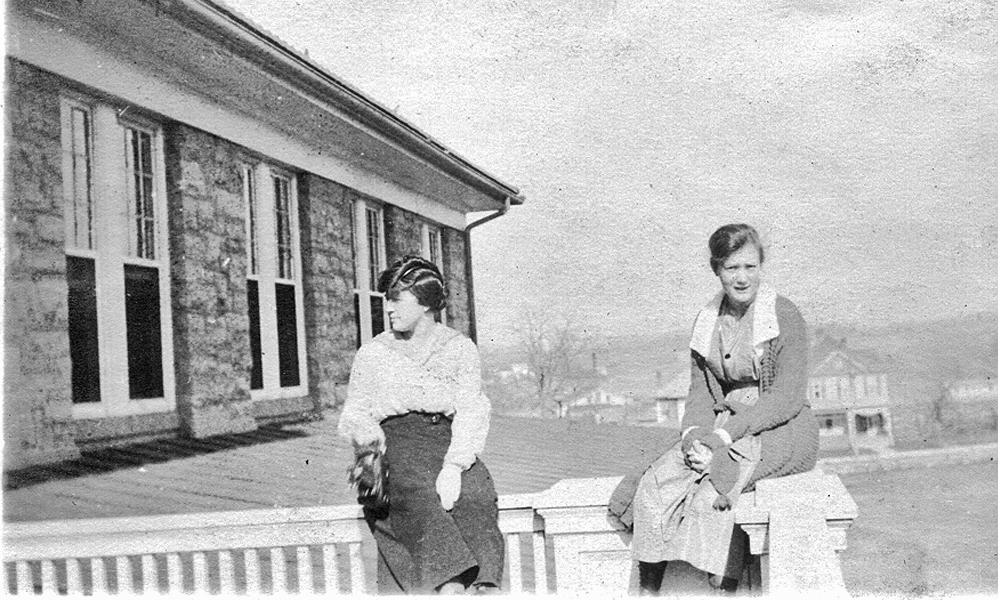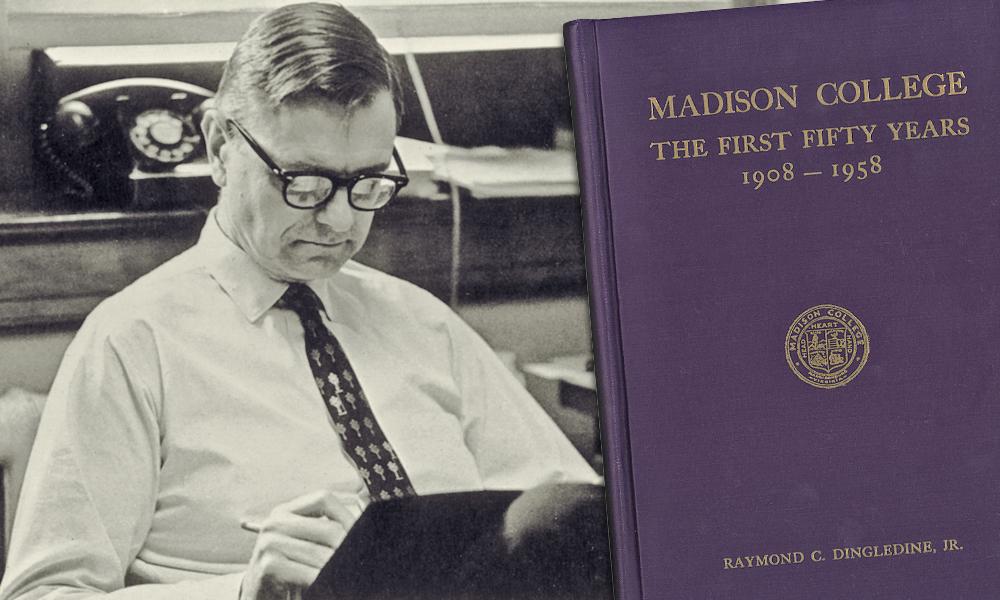‘It had been a trying experience’
JMU News
SUMMARY: In Madison College: The First Fifty Years 1908-1958, Raymond C. Dingledine Jr. wrote about the 1918 influenza pandemic, also known as the Spanish flu, and its effects at the State Normal School for Women at Harrisonburg.
By Janet Smith (’81)
More than a century ago, the institution that now bears the name James Madison University was impacted by a global medical crisis—the 1918 influenza pandemic, also known as the Spanish flu.
The late Raymond C. Dingledine Jr., who wrote Madison College: The First Fifty Years 1908-1958, the authoritative history of the college, had knowledgeable firsthand sources for his writing about the disease’s outbreak at the State Normal School for Women at Harrisonburg. His parents, Raymond Carlyle and Agness Stribling Dingledine, who married in 1918, were faculty members at the time.
The younger Dingledine joined the school’s faculty in 1948 and became head of the history department in 1965, serving until his retirement in 1984. His brief, poignant writings about the 1918 pandemic provide a glimpse into a period in which the institution’s people united to help each other in mighty ways.

“The most difficult period of the war for the Normal came in the fall of 1918 when the flu epidemic that was sweeping the country struck the campus. When school opened on September 25, the epidemic was spreading over the state and the four normal school presidents met in Charlottesville for a special conference. The usual school activities and classes were held during the first week at Harrisonburg but, by the first of the next week, so many girls were sick that Jackson Hall was, bit by bit, turned into an infirmary—half of the first floor at first, then all of that floor, and then the whole building. The social director, Miss Lancaster, took charge of this “infirmary” while the School nurse, Miss Godfrey, supervised the regular infirmary in Cleveland Cottage. Feminine members of the faculty helped as nurses. President Burruss, himself, came down with the flu on Tuesday, October 1, and was confined to his room for three weeks, during which time Professor Johnston was made acting president. Appeals to the State Health Commission for nurses were virtually fruitless. Serving meals to the sick, which by this time numbered sixty or more, was a heavy burden. Miss Lancaster became ill and other faculty and Post-Graduate student assistants had to carry on.
By Sunday, October 6, the shortage of help was so desperate that Dr. Wilson, at the request of Mr. Johnston, appealed for volunteers at his Sunday night service at the Presbyterian Church. Ethel Spilman, a supervisor in the training school, and Miss Shaeffer answered the call. They spent the night on duty in Jackson Hall, one on one floor and one on the other. The next day classes were suspended for two weeks. All well students, except student assistants and Post-Graduates who stayed behind to help, were sent home. Without the burden of constant new cases, conditions at the School rapidly improved. The suspension of classes was extended for two more weeks to allow time for full recovery and to allow students to help at home if needed. Members of the faculty and many of the Post-Graduate students helped out in Harrisonburg. On Wednesday, November 6th, the Normal reopened with virtually all the students present.
It had been a trying experience, but not a single life had been lost. In humble thanksgiving, special services of gratitude were held the following Sunday. Since so much time had been lost, classes met on Thanksgiving Day that year, but special events were held. During the assembly period the Y.W.C.A. conducted a service. At four o’clock, students and faculty participated in a “Victory Sing” led by Miss Shaeffer and featuring the national songs of England, Belgium, France and Italy, and a talk by Dr. Wilson. At 5:00, all were served Thanksgiving dinner in the dining hall.”
Read more about the Dingledine family’s contributions and connections to JMU.
# # #
